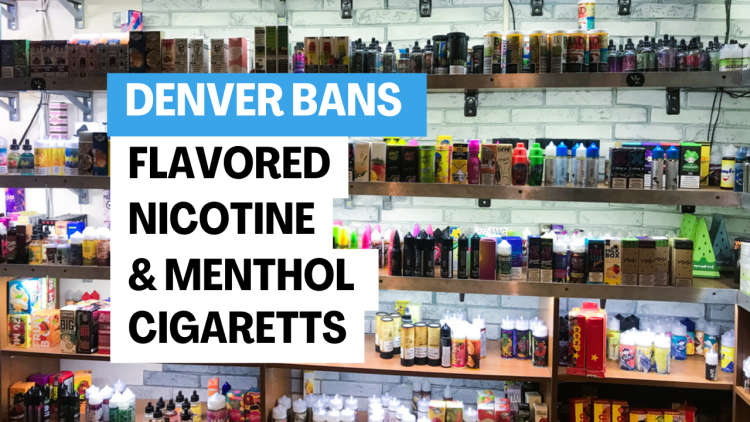Denver City Council Votes to Ban Flavored Tobacco Sales
The Denver City Council voted 11 to 1 on Monday night to ban the sale of flavored tobacco products within city limits. The ordinance targets a wide range of products, including e-cigarettes, menthol cigarettes, vapes, and other flavored nicotine items, sparking a heated debate among community members and business owners.
A Divisive Debate
The council meeting saw testimony from 34 community members representing both sides of the issue. Supporters of the ban, many wearing red, argued that the measure is essential to prevent teens and young adults from accessing addictive tobacco products. Opponents, dressed in yellow shirts with messages like “Stop the Menthol Ban! Save our Stores and Jobs,” warned of severe economic repercussions for small businesses.
One supporter shared a personal story of how nicotine impacted her family.
“The earliest memory I have of my father is an image of him smoking Pall Mall cigarettes,” she said. “Smoking was his only way of coping with how to live day to day.”
Proponents emphasized the addictive nature of nicotine, comparing its effects to drugs like cocaine and heroin.
“Nicotine, as a drug regardless of its delivery mechanism, drives repeated use and dependence,” one speaker explained.
Small Businesses Push Back
Business owners, particularly those operating vape and tobacco shops, expressed concerns about the economic fallout of the ban.
“You can go up the street, maybe not even five minutes, and get your vapes or get whatever they would need,” said Manraj Singh, owner of All in One. “It just puts money out of our pocket into another city down the road.”
Singh warned that the ordinance could devastate small businesses.
“My uncle in Golden, where they’re also seeing a flavor ban, said his sales are down 30%,” Singh added.
Do Bans Work?
Critics of the ordinance questioned its effectiveness, arguing that prohibition often fails to address underlying issues. Anthony Carothers, a retired Chicago police officer with over 30 years of experience, attended the meeting to voice his opposition.
“The only way you could ever create change is to change the way people think about an item,” Carothers said. “Banning it, saying, ‘No, you can’t have it,’ won’t do it.”
Carothers also raised concerns about enforcement, suggesting that without adequate resources, such bans could lead to uneven implementation.
Moving Forward
The flavored tobacco ban marks a significant step in Denver’s efforts to curb tobacco use, particularly among younger demographics. However, the ordinance has also highlighted the tension between public health goals and the economic challenges faced by local businesses. As Denver joins other cities in implementing similar measures, the long-term impact of the ban remains to be seen.












